Publications
Articles, publications, books, tools and multimedia features from the U.S. Institute of Peace provide the latest news, analysis, research findings, practitioner guides and reports, all related to the conflict zones and issues that are at the center of the Institute’s work to prevent and reduce violent conflict.
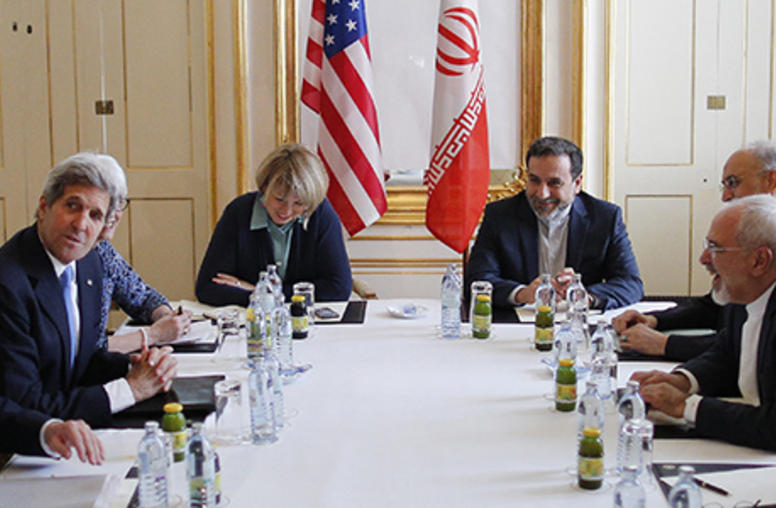
The Iran Nuclear Deal: Pitfalls and Promises
The debate swirling around the historic nuclear deal reached by Iran and the world’s six major powers this month played out among two nuclear experts, a sanctions specialist and an Iran scholar during an event co-hosted by USIP at the Woodrow Wilson International Center for Scholars yesterday. The discussion outlined many of the issues that will top agendas in Washington and Tehran as lawmakers in both countries consider the agreement in the coming months.
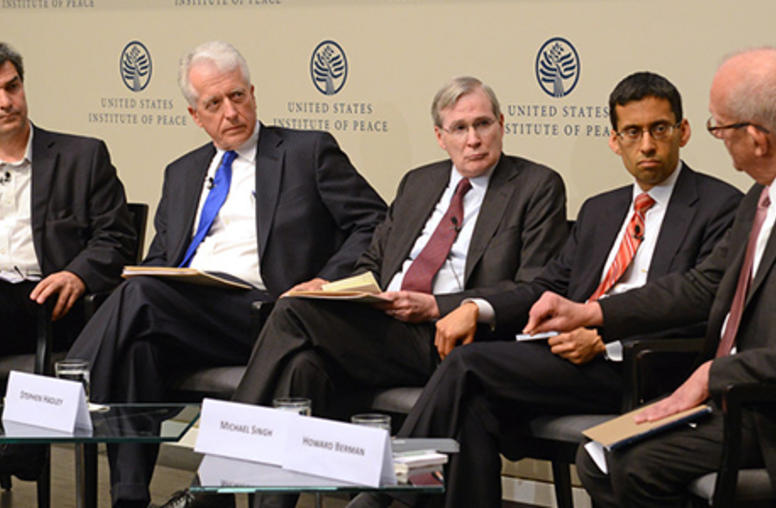
Will U.S., Iranian Politics Undercut a Nuclear Deal – or Save It?
A former Iranian lawmaker and a former member of Congress agreed that the question of whether American politics will give President Barack Obama the leeway he needs to reach a nuclear deal with Iran remains one of the central issues as negotiations resume this week. The Middle Eastern nation and the world’s six major powers face a June 30 deadline for converting a blueprint into a final agreement.
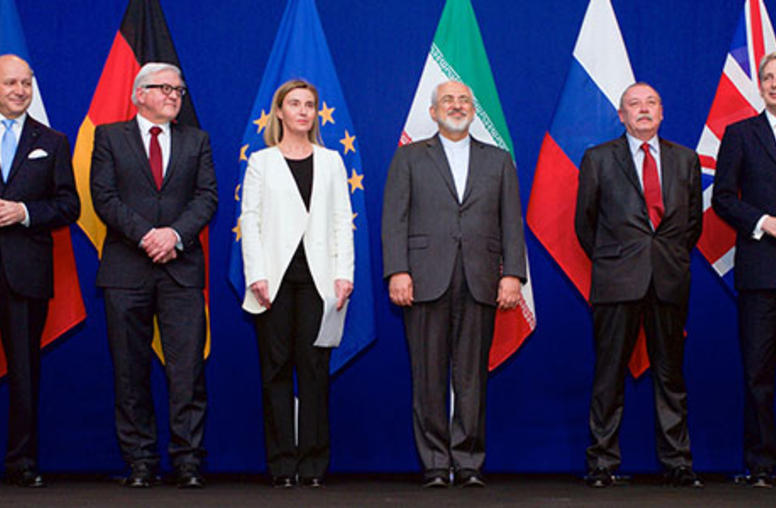
Q&A: In Principle, a Nuclear Agreement with Iran?
Iran has agreed with six major powers—the five permanent members of the U.N. Security Council plus Germany—to limit its nuclear activities for at least a decade in exchange for an end to international economic sanctions. This agreement on principles, announced yesterday, is incomplete. More talks will be needed to decide numerous technical details, including the pace at which sanctions will be lifted. As USIP’s Robin Wright explores the ramifications of the agreement for Iran’s place in the w...
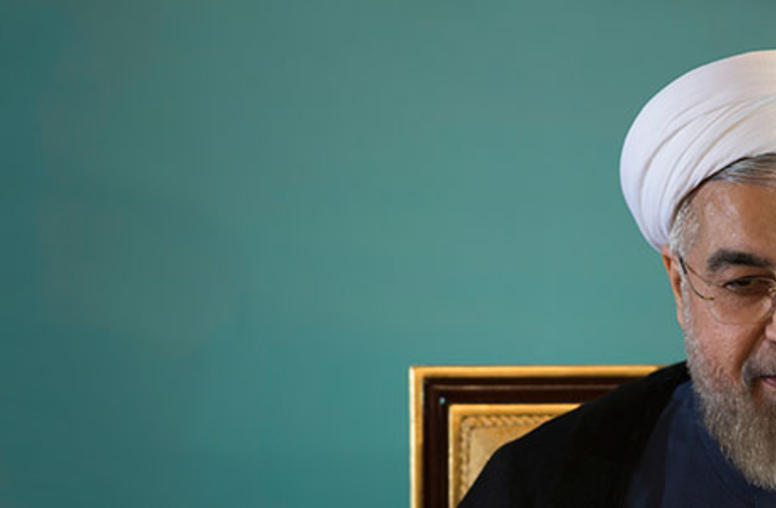
Q&A: Nuclear Deal Will Boost President Rouhani
Yesterday’s announced framework for a deal on Iran’s nuclear program will limit Iran’s nuclear activities in exchange for an end to international economic sanctions against the country. Many experts, including USIP’s Daniel Brumberg, have offered analysis of the agreement’s details, including its chances of preventing Iran from reaching a nuclear-weapons capability. Less attention has focused on the meaning of the accord for Iran and its place in the world. USIP expert and author Robin Wright...
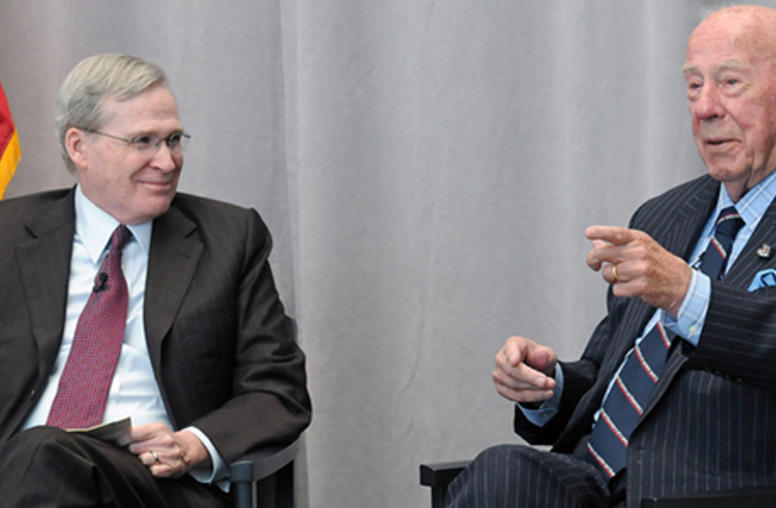
China Has Peaked as a Challenger to U.S. Power, Former Secretary of State Shultz Says
While China continues to grow as an economy and a military and political power, its overall influence relative to the United States has passed its peak, former Secretary of State George Shultz said at the U.S. Institute of Peace January 30. As China’s population ages, fewer working-age people must support a larger aged and dependent populace. “I think China, in relation to the U.S., has already reached its peak,” Shultz said in offering the Institute’s annual Dean Acheson Lecture.
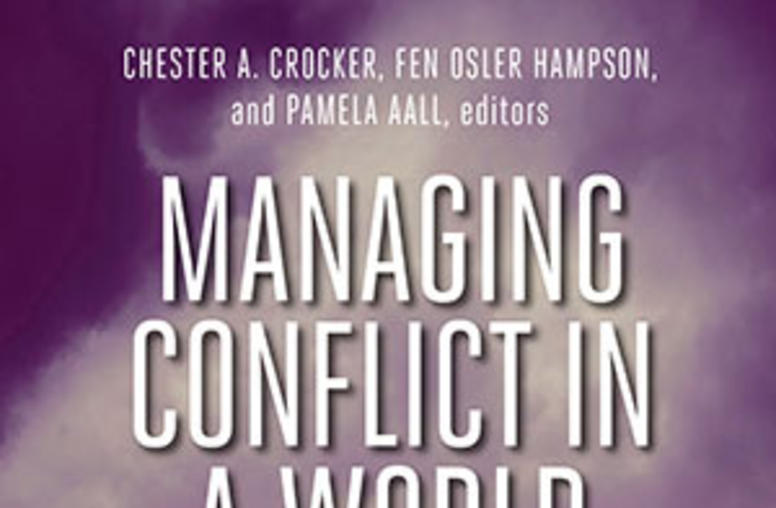
Managing Conflict in a World Adrift
In the midst of a political shift where power is moving from central institutions to smaller, more distributed units in the international system, the approaches to and methodologies for peacemaking are changing. "Managing Conflict in a World Adrift" provides a sobering panorama of contemporary conflict, along with innovative thinking about how to respond now that new forces and dynamics are at play.
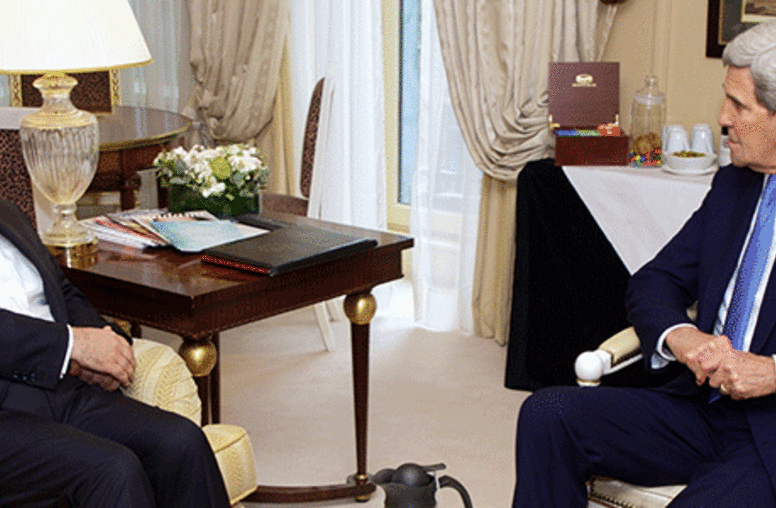
Q&A: Iran Nuclear Talks
Talks between Iran and six major powers—the U.S., the U.K., China, France, Germany and Russia—seek a framework agreement by March 24 with technical details by June. But leaders on all sides face intense—and sometimes harrowing—domestic pressure from opponents who fear a final agreement will give away too much. Robin Wright, an author and distinguished fellow at the U.S. Institute of Peace, explores the dynamics of the diplomacy.
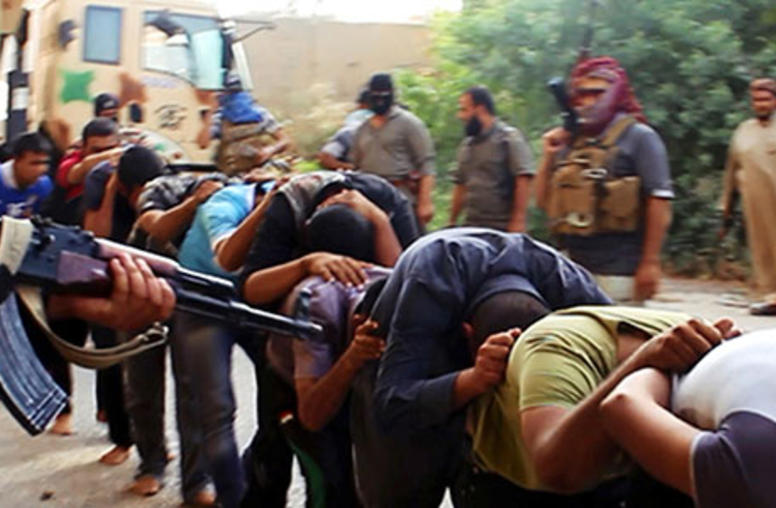
The United States Will Never Win the Propaganda War Against the Islamic State
To win hearts and minds in the Middle East, America needs to let local allies do the talking.
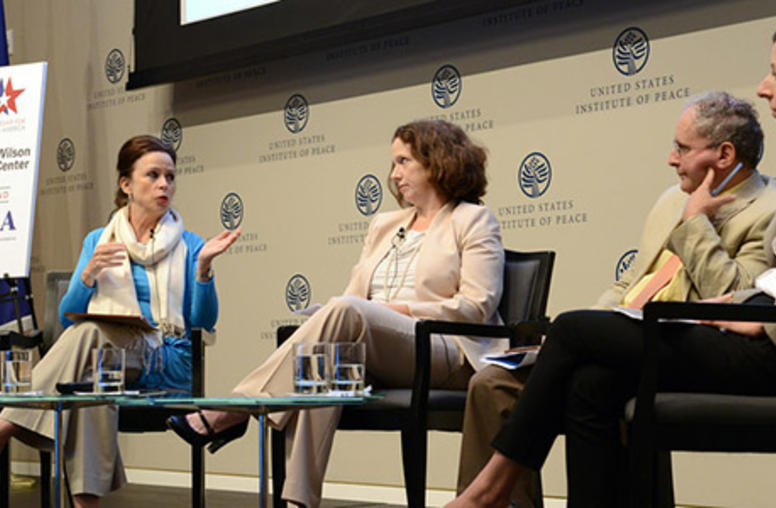
Iran Sanctions and the Possible Trade-Offs for a Nuclear Deal
Since 2006, the United States has imposed more sanctions on Iran than any other country, so it may have to cede the most ground to get a nuclear deal in 2014. An expert panel assembled by eight Washington think tanks and organizations examined the potential trade-offs during a discussion July 8 at the U.S. Institute of Peace.
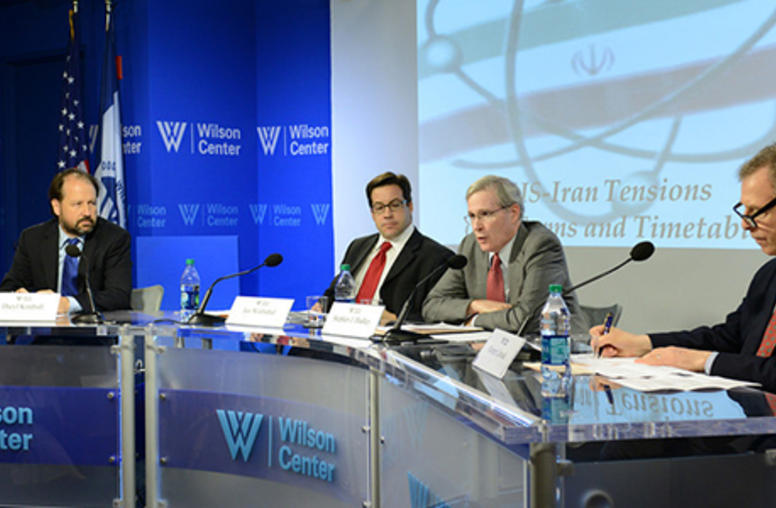
Nuclear Flashpoints: US-Iran Tensions Over Timetables and Terms
Another round of diplomatic talks over Iran’s nuclear program with six world powers starts June 16. Despite the promise of a potential deal, the most recent round of negotiations exposed the still-deep divisions between the two sides on basic questions. A final agreement will have to establish timetables and settle on interpretation of terms, among other critical issues.